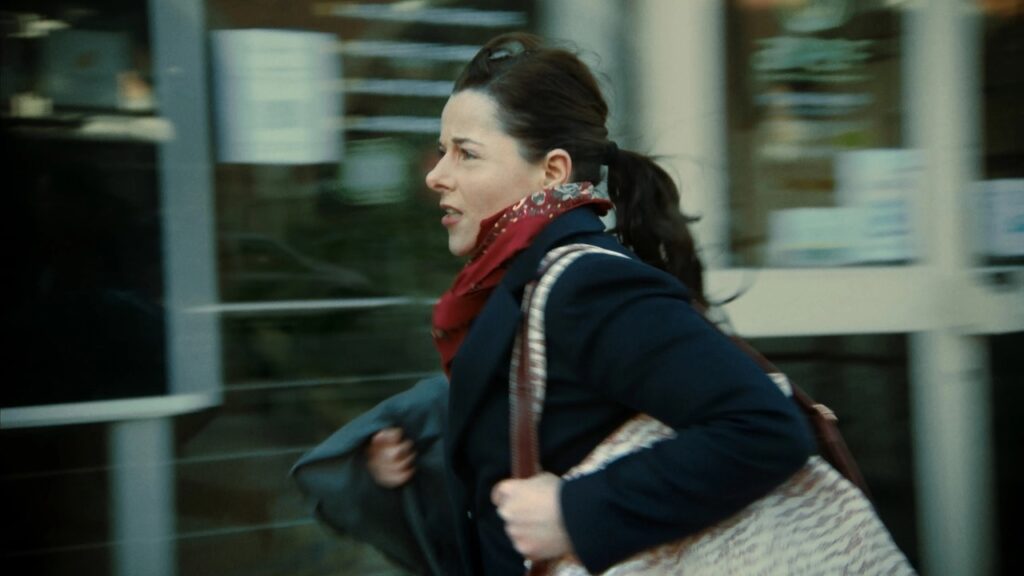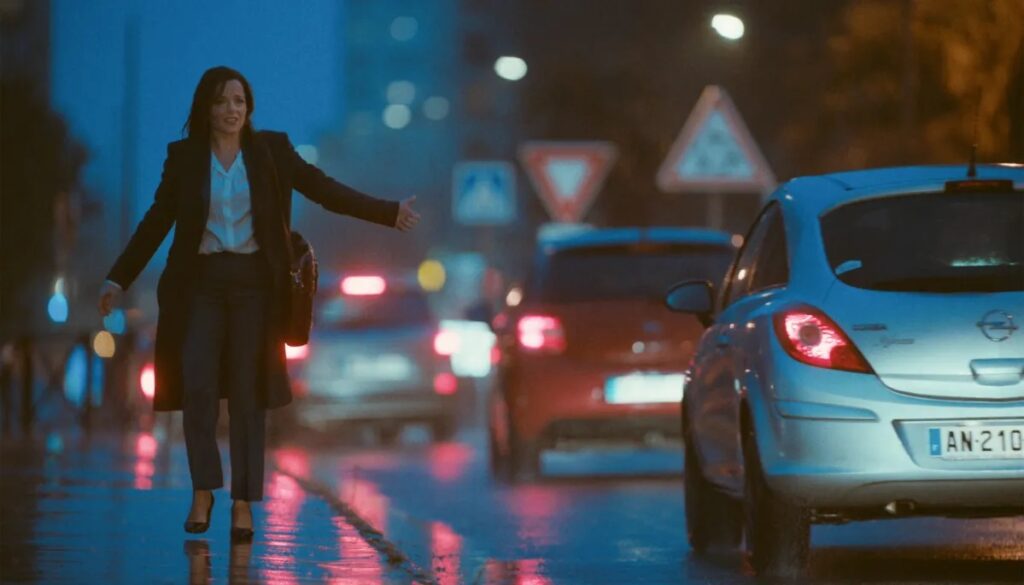The grind has never been captured quite as it has in Full Time (A Plein Temps). While filmmakers like Ken Loach attack capitalism’s damaging, heavily prejudiced attack on society’s poorest, Éric Gravel’s French film has a slightly less angry, more contemplative outlook on the way an outdated model of work-life balance leaves people hovering precariously above an endless void of trouble. Full Time is a fascinating and at times stressful drama likely to resonate with those going against the odds to better themselves – though the film also suffers under its rigidly singular vision.

Offered a chance to interview for a Marketing Executive job that would let her escape the draining hospitality sector, Julie (Call My Agent’s Laure Calamy) is ready to seize this newfound opportunity. However, money troubles, parental woes, and a city-wide public transport strike all threaten to stop her dreams in their tracks. From the premise, you may think this is a Run Lola Run situation, capturing a frantic quest for a small fortune in what is frighteningly close to real-time. Gravel’s film is somewhat more conventional, but perhaps being killed by a mafia boss is preferable to participating in the anxiety-inducing graft that is Julie’s everyday life.
A dizzying amount of Full Time is spent on the move – be it in cars, trains, or on foot. Moments of stillness, be they first thing in the morning or the last thing at night, are fleeting in their comfort. By keeping the story and the camera almost constantly moving, Gravel never allows the urgency and suspense to falter, despite what is (on paper at least) a relatively low-stakes plot. The film effortlessly induces genuine dislike for companies who return none of the loyalty their employees show them, and Full Time illustrates how every person is reduced to the sum of their functions and duties, both at work and outside of it. The straightforward story functions as a vehicle for gripping commentary on workers’ status in the current job market.

Helping to anchor the various plot threads is Calamy’s outstanding lead performance, combining weariness and determination in everything from her eyes to her body language. Refreshingly, Julie’s increasingly difficult situation does not result in neglect or violence à la Sorry We Missed You. Calamy never allows her character to disintegrate fully and captures the full range of Julie’s situation with moving realism. She is helped by a script that never wavers towards melodrama – the point is, this could be happening to anybody you know. It is a deeply grounded, realistic depiction of modern working life.
However, Julie (and all the other characters) only seem to exist as subservient to the film’s point, without room for organic development. While, for example, Nomadland is near-faultless in its depiction of personal growth against a harsh economic backdrop, Full Time never affords Julie or its other characters the same courtesy. Julie’s early stages romance with another single parent is cut brutally short, and nobody else in the film is afforded the same detail or time as her (the hotel boss, in particular, feels like a very two-dimensional character, despite the suggestion of a history between her and Julie). As a result, it lacks the genuine emotional depth needed to make you care not just about what is happening, but who it is happening to.

There are some other apparent oversights. For a film that comes down so hard on the modern state of capitalism, the striking workers are made out to be little more than an inconvenience and are given virtually no screen time. The film’s ending, although happy, also seems to undercut the overall point of an endlessly grating existence as a working mum. Full Time still manages to be an interesting pointing-of-the-finger at modern ways of working and features a stand-out lead performance from Calamy but, in the end, you feel like a witness to the purpose of the film, without being invited to connect with the people at its heart.
Full Time was screened as part of the 2022 Edinburgh International Film Festival.
